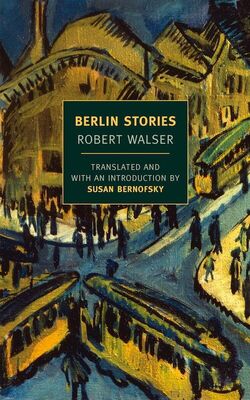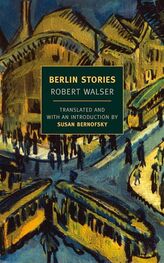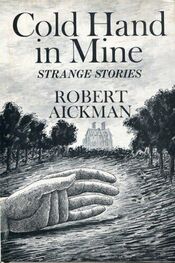1914
One day, when I was looking for a suitable room, I entered a curious house just outside the city and close to the city tramway, an elegant, oldish, and seemingly rather neglected house, whose exterior had a singularity which at once captivated me.
On the staircase, which I slowly mounted, and which was wide and bright, were smells and sounds as of bygone elegance.
What they call former beauty is extraordinarily attractive to some people. Ruins are rather touching. Before the residues of noble things our pensive, sensitive inward selves involuntarily bow. The remnants of what was once distinguished, refined, and brilliant infuse us with compassion, but simultaneously also with respect. Bygone days and old decrepitude, how enchanting you are!
On the door I read the name “Frau Wilke.”
Here I gently and cautiously rang the bell. But when I realized that it was no use ringing, since nobody answered, I knocked, and then somebody approached.
Very guardedly and very slowly somebody opened the door. A gaunt, thin, tall woman stood before me, and asked in a low voice: “What is it you want?”
Her voice had a curiously dry and hoarse sound.
“May I see the room?”
“Yes, of course. Please come in.”
The woman led me down a strangely dark corridor to the room, whose appearance immediately charmed and delighted me. Its shape was, as it were, refined and noble, a little narrow perhaps, yet proportionately tall. Not without a sort of irresolution, I asked the price, which was extremely moderate, so I took the room without more ado.
It made me glad to have done this, for a strange state of mind had much afflicted me for some time past, so I was unusually tired and longed to rest. Weary of all groping endeavor, depressed and out of sorts as I was, any acceptable security would have satisfied me, and the peace of a small resting place could not have been other than wholly welcome.
“What are you?” the lady asked.
“A poet!” I replied.
She went away without a word.
An earl, I think, might live here, I said to myself as I carefully examined my new home. This charming room, I said, proceeding with my soliloquy, unquestionably possesses a great advantage: it is very remote. It’s quiet as a cavern here. Definitely: here I really feel I am concealed. My inmost want seems to have been gratified. The room, as I see it, or think I see it, is, so to speak, half dark. Dark brightness and bright darkness are floating everywhere. That is most commendable. Let’s look around! Please don’t put yourself out, sir! There’s no hurry at all. Take just as much time as you like. The wallpaper seems, in parts, to be hanging in sad, mournful shreds from the wall. So it is! But that is precisely what pleases me, for I do like a certain degree of raggedness and neglect. The shreds can go on hanging; I’ll not let them be removed at any price, for I am completely satisfied with them being there. I am much inclined to believe that a baron once lived here. Officers perhaps drank champagne here. The curtain by the window is tall and slender, it looks old and dusty; but being so prettily draped, it betokens good taste and reveals a delicate sensibility. Outside in the garden, close to the window, stands a birch tree. Here in summer the green will come laughing into the room, on the dear gentle branches all sorts of singing birds will gather, for their delight as well as for mine. This distinguished old writing table is wonderful, handed surely down from a past age of subtle feeling. Probably I shall write essays at it, sketches, studies, little stories, or even long stories, and send these, with urgent requests for quick and friendly publication, to all sorts of stern and highly reputable editors of papers and periodicals like, for example, The Peking Daily News , or Mercure de France , whence, for sure, prosperity and success must come.
The bed seems to be all right. In this case I will and must dispense with painstaking scrutiny. Then I saw, and here remark, a truly strange and ghostly hatstand, and the mirror there over the basin will tell me faithfully every day how I look. I hope the image it will give me to see will always be a flattering one. The couch is old, consequently pleasant and appropriate. New furniture easily disturbs one, because novelty is always importunate, always obstructs us. A Dutch and a Swiss landscape hang, as I observe to my glad satisfaction, modestly on the wall. Without a doubt, I shall look time and again at these two pictures most attentively. Regarding the air in this chamber, I would nevertheless deem it credible, or rather postulate at once with certitude almost, that for some time here no thought has been given to regular and, it seems, wholly requisite ventilation. I do declare that there is a smell of decay about the place. To inhale stale air provides a certain peculiar pleasure. In any case, I can leave the window open for days and weeks on end; then the right and good will stream into the room.
“You must get up earlier. I cannot allow you to stay in bed so long,” Frau Wilke said to me. Beyond this, she did not say much.
This was because I spent entire days lying in bed.
I was in a bad way. Decrepitude surrounded me. I lay there as if in heaviness of heart; I neither knew nor could find myself anymore. All my once lucid and gay thoughts floated in obscure confusion and disarray. My mind lay as if broken in fragments before my grieving eyes. The world of thought and of feeling was jumbled and chaotic. Everything dead, empty, and hopeless to the heart. No soul, no joy anymore, and only faintly could I remember that there were times when I was happy and brave, kind and confident, full of faith and joy. The pity of it all! Before and behind me, and all around me, not the slightest prospect anymore.
Yet I promised Frau Wilke to get up earlier, and in fact I did then also begin to work hard.
Often I walked in the neighboring forest of fir and pine, whose beauties, wonderful winter solitudes, seemed to protect me from the onset of despair. Ineffably kind voices spoke down to me from the trees: “You must not come to the dark conclusion that everything in the world is hard, false, and wicked. But come often to us; the forest likes you. In its company you will find health and good spirits again, and entertain more lofty and beautiful thoughts.”
Into society, that is, where the big world forgathers, I never went. I had no business there, because I had no success. People who have no success with people have no business with people.
Poor Frau Wilke, soon afterwards you died.
Whoever has been poor and lonely himself understands other poor and lonely people all the better. At least we should learn to understand our fellow beings, for we are powerless to stop their misery, their ignominy, their suffering, their weakness, and their death.
One day Frau Wilke whispered, as she stretched out her hand and arm to me: “Hold my hand. It’s like ice.”
I took her poor, old, thin hand in mine. It was cold as ice.
Frau Wilke crept about her home now like a ghost. Nobody visited her. For days she sat alone in her unheated room.
To be alone: icy, iron terror, foretaste of the grave, forerunner of unpitying death. Oh, whoever has been himself alone can never find another’s loneliness strange.
I began to realize that Frau Wilke had nothing to eat. The lady who owned the house, and later took Frau Wilke’s rooms, allowing me to stay in mine, brought, of course in pity for her forsaken state, every midday and evening a cup of broth, but not for long, and so Frau Wilke faded away. She lay there, no longer moving: and soon she was taken to the city hospital, where, after three days, she died.
One afternoon soon after her death, I entered her empty room, into which the good evening sun was shining, gladdening it with rose-bright, gay and soft colors. There I saw on the bed the things which the poor lady had till recently worn, her dress, her hat, her sunshade, and her umbrella, and, on the floor, her small delicate boots. The strange sight of them made me unspeakably sad, and my peculiar state of mind made it seem to me almost that I had died myself, and life in all its fullness, which had often appeared so huge and beautiful, was thin and poor to the point of breaking. All things past, all things vanishing away, were more close to me than ever. For a long time I looked at Frau Wilke’s possessions, which now had lost their mistress and lost all purpose, and at the golden room, glorified by the smile of the evening sun, while I stood there motionless, not understanding anything anymore.
Читать дальше






